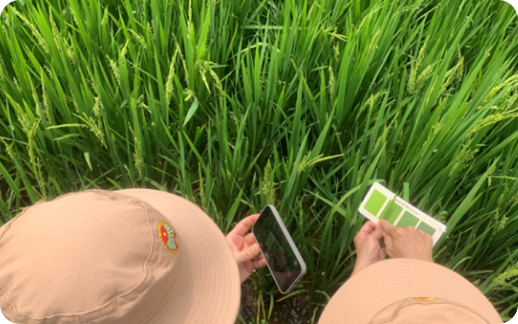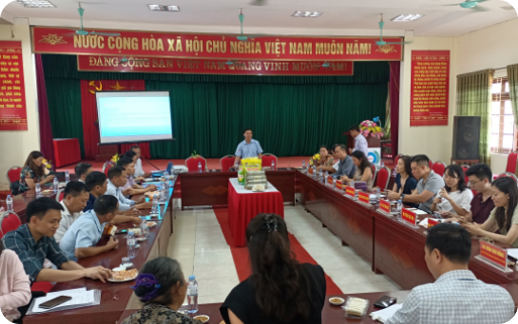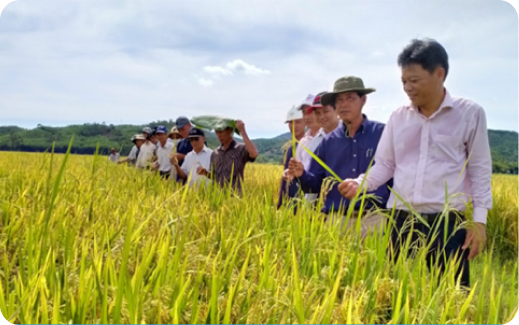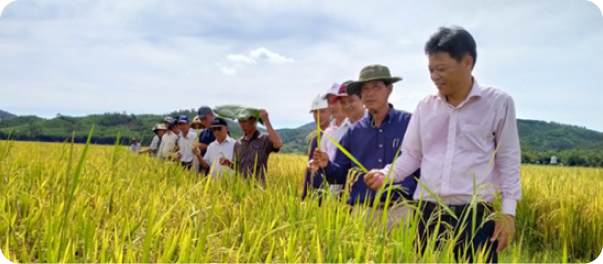Background
At the 26th Conference of the Parties (COP26) to the United Nations Framework Convention on Climate Change (UNFCCC), Vietnam committed to sustained practical actions to achieve net-zero emissions by 2050. Implementing more climate-friendly rice production practices is a key component of this action plan. Additionally, more than 60% of Vietnam’s contaminated groundwater is a result of excessive pesticide and fertilizer use in agricultural production. These challenges make it essential for Vietnam to promote sustainable farming practices, enhance the value of the rice industry, and support the sustainable development of related sectors. This approach not only contributes to the global response to climate change but also improves domestic rice quality, increases farmers’ incomes, and enhances operational efficiency.
The System of Rice Intensification (SRI), is a farming method aimed at achieving sustainable ecological rice cultivation and has been promoted in over 50 countries and regions worldwide. By 2013, this technology had been adopted in 23 provinces in Vietnam, seeking to minimize agricultural greenhouse gas emissions, improve the livelihoods of rice farmers, mitigate climate change, and promote the sustainable development of the rice industry.
Building on this foundation, the project supports the continued promotion of select SRI techniques in Vietnam. It provides technical training for farmers, enhances the capabilities of all stakeholders in the rice industry—including farmers and businesses—to benefit from the system, and promotes the marketability of SRI rice.
This approach promotes efficiency and productivity while contributing to the reduction of greenhouse gas emissions. It also lowers input costs from fertilizers, pesticides, and irrigation water. Key technologies promoted by the project include proper use of rice straw (for composting, mulching or mushroom cultivation instead of burning), reduced/optimised fertilizer use and water management practices . Reducing the use of chemical fertilizers also helps decrease nitrous oxide emissions—a potent greenhouse gas.
To further minimize greenhouse gas emissions from agricultural sources, the project focuses rice farming areas to enhance soil organic quality, increase efficiency, reduce agricultural chemical usage, and improve the organic carbon sequestration capacity of agricultural systems. Through technological integration and model innovation, we aim to ensure food safety, improve the livelihoods of rice farmers, mitigate global warming, and promote the sustainable development of the rice industry.




